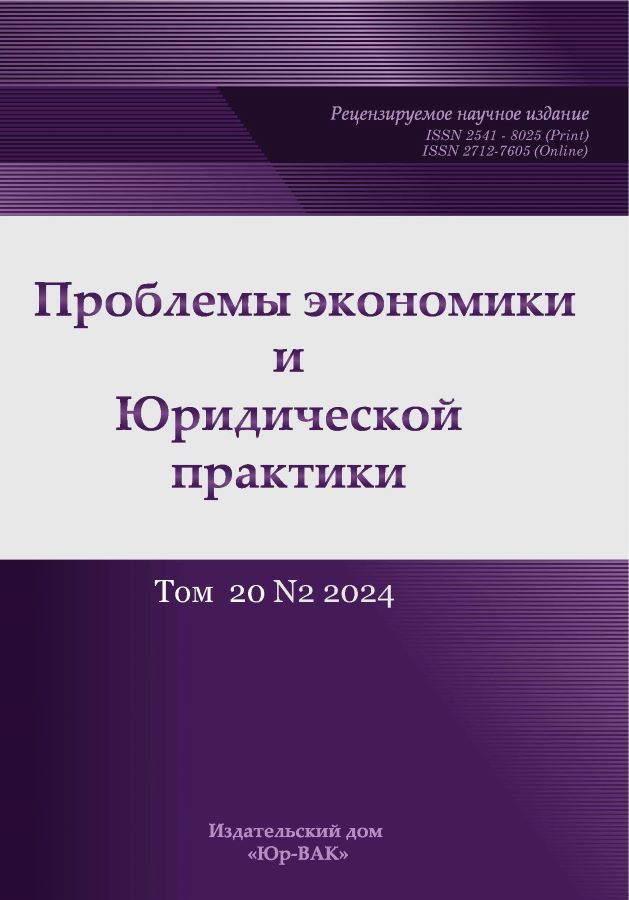The Impact Sanction on Iraq
- 作者: Degtyareva I.V.1, Ben Brahim F.1
-
隶属关系:
- Ufa University of Science and Technology
- 期: 卷 20, 编号 2 (2024)
- 页面: 169-173
- 栏目: Economic Theory
- URL: https://journals.eco-vector.com/2541-8025/article/view/633790
- DOI: https://doi.org/10.33693/2541-8025-2024-20-2-169-173
- EDN: https://elibrary.ru/NJWRKG
- ID: 633790
如何引用文章
详细
The paper discusses the Gulf War and its economic repercussions, among other things, the article addresses the disastrous effects of the UN Security Council embargo on Iraq. It draws attention to Iraq's strained resources, heightened susceptibility to outside forces, and long-term impacts of the conflict. The study delves into the intricate mechanisms that contribute to Iraq's economic woes as well as the sanctions imposed by the international community. Main Results: The extensive embargo imposed on Iraq by the UN Security Council had disastrous effects on the country's population and economy. The main causes of Iraq's current situation were determined to be the severity and arbitrary character of the sanctions system. The Gulf War that followed Iraq's invasion of Kuwait resulted in heightened international isolation and a tightening of the sanctions system. The Sanctions Committee also arranged for Iraq to receive financial assistance every six months to cover the cost of importing food, medical supplies, and other necessities for humanitarian relief.
全文:
作者简介
Irina Degtyareva
Ufa University of Science and Technology
Email: degtyareva.iv@ugatu.su
SPIN 代码: 7210-6767
Dr. Sci. (Econ), Professor, Head of the Department of Economic Theory, Institute of Economics, Management and Business
俄罗斯联邦, UfaFadwa Ben Brahim
Ufa University of Science and Technology
编辑信件的主要联系方式.
Email: benbrahimfadwa1989@gmail.com
ORCID iD: 0000-0001-5334-8324
postgraduate student of the Department of Economic Theory, Institute of Economics, Management and Business
俄罗斯联邦, Ufa参考
- Hoffmann, Fredrik. 1967. «The Functions of Economic Sanctions: A Comparative Analysis». Journal of Peace Research 4 (2): 140–59.
- Hosoya, Chihiro. 1968. «Miscalculations in Deterrent Policy: Japanese-U.S. Relations, 1938–1941». Journal of Peace Research 5 (2): 97–115.
- Hufbauer, Gary C. 1998. «Economic Sanctions». In Proceedings of the ASIL Annual Meeting, edited by John L. Hargrove, 332–35. Washington, DC: American Society for International Law.
- Hufbauer, Gary C., and Euijun Jung. 2020. «What’s New in Economic Sanctions?» European Economic Review 130: 103572.
- Hufbauer, Gary C., and Thomas Moll. 2007. «Using Sanctions to Fight Terrorism». In Terrornomics, edited by Sean S. Costigan and David Gold, 179–94. London: Routledge.
- Hufbauer, Gary C., and Jeffrey J. Schott. 1985. Economic Sanctions Reconsidered: History and Current Policy. Washington, DC: Peterson Institute.
- Hufbauer, Gary C., Jeffrey J. Schott, and Kimberly A. Elliott. 1990. Economic Sanctions Reconsidered: History and Current Policy. 2nd ed. Washington, DC: Peterson Institute.
- Hufbauer, Gary C., Jeffrey J. Schott, Kimberly A. Elliott, and Barbara Oegg. 2007. Economic Sanctions Reconsidered: History and Current Policy. 3rd ed. Washington, DC: Institute for International Economics.
- Jacobson, Harold K., and Michel Oksenberg. 1990. China’s Participation in the IMF, the World Bank, and GATT: Toward a Global Economic Order. Ann Arbor, MI: University of Michigan Press.
- Jentleson, Bruce W., and Rebecca L. Britton. 1998. «Still Pretty Prudent: Post-Cold War American Public Opinion on the Use of Military Force». Journal of Conflict Resolution 42 (4): 395–417.
- Kaempfer, William H. and Anton D. Lowenberg. 2007. «The Political Economy of Economic Sanctions». In Handbook of Defense Economics, Vol. 2, edited by Todd Sandler and Keith Hartley, 867–911. Amsterdam: Elsevier.
- Kagan, Donald. 1969. The Outbreak of the Peloponnesian War. Ithaca, NY: Cornell University Press.
- FAO/World Food Program (1997) FAO/WFP Food Supply and Nutrition Assessment Mission to Iraq (Rome: FAO).
- Freedman, L & Karsh, E (1993) The Gulf Conflict, 1990-1991: Diplomacy and War in the New World Order (Princeton, NJ: Princeton University Press).
- Garfield, R. (2000) Chanes in health and well-being in Iraq during the 1990s: What do we know and how do we know it? Sanctions on Iraq: Background, Consequences, Strategies, pp 32–51 (Cambridge: Campaign Against Sanctions on Iraq).
- Gellman, B. (1991) Allied air war struck broadly in Iraq: officials acknowledge strategy went beyond purely military targets, Washington Post, 23 June.
- Graham-Brown, S. (2000) Sanctioning Iraq: a failed policy, Middle East Report, 215, pp 8–13.
- Haider, G. & Farraj, S. (1998) Iraqi oil: potential and opportunities, OPEC Bulletin, April, pp 9–15.
- Hiro, D. (1992) Desert Shield to Desert Storm: The Second Gulf War (New York: Routledge).
- Pellett, P. (2000) Sanctions, food, nutrition, and health in Iraq, in: A Arnove (ed), Iraq under Siege: The Deadly Impact of Sanctions and War, pp 152-168 (Cambridge, MA: South End Press).
- Provost, R. (1992) Starvation as a weapon: legal implications of the United Nations food blockade against Iraq and Kuwait, Columbia Journal of Transactional Law, 30 (3), pp 577–639.
补充文件








